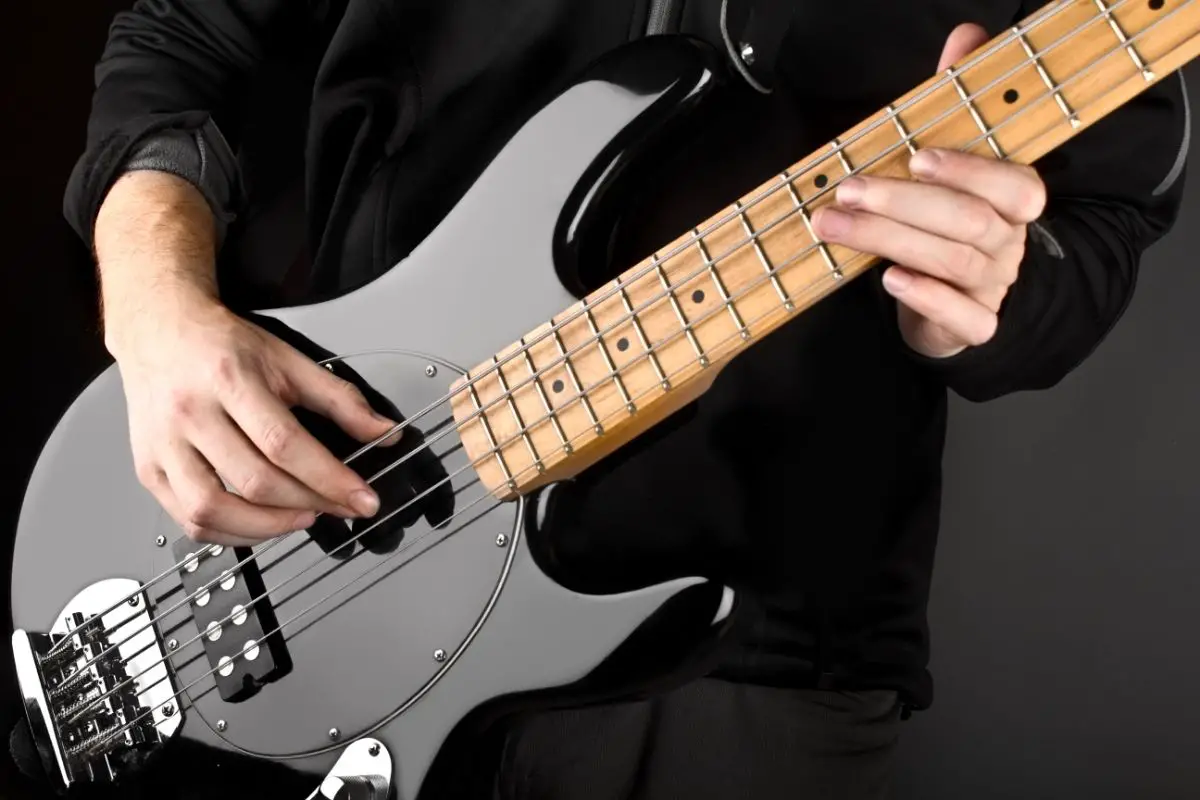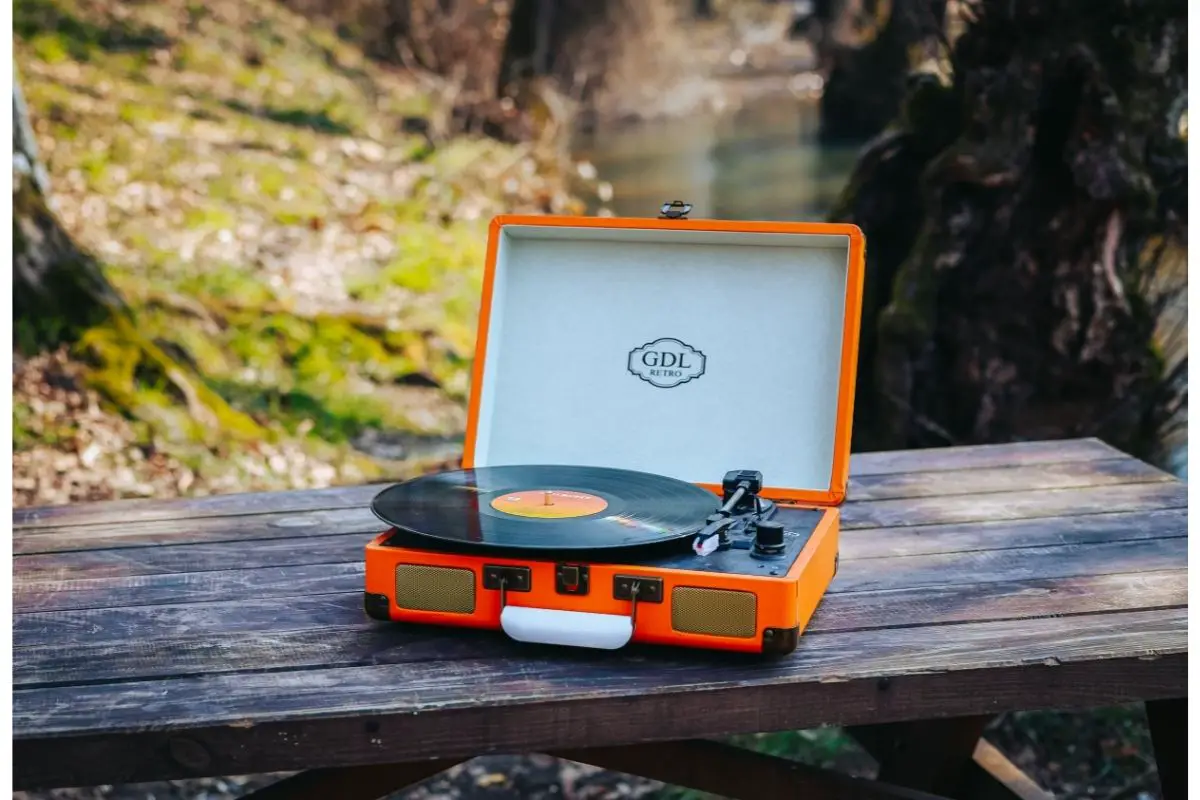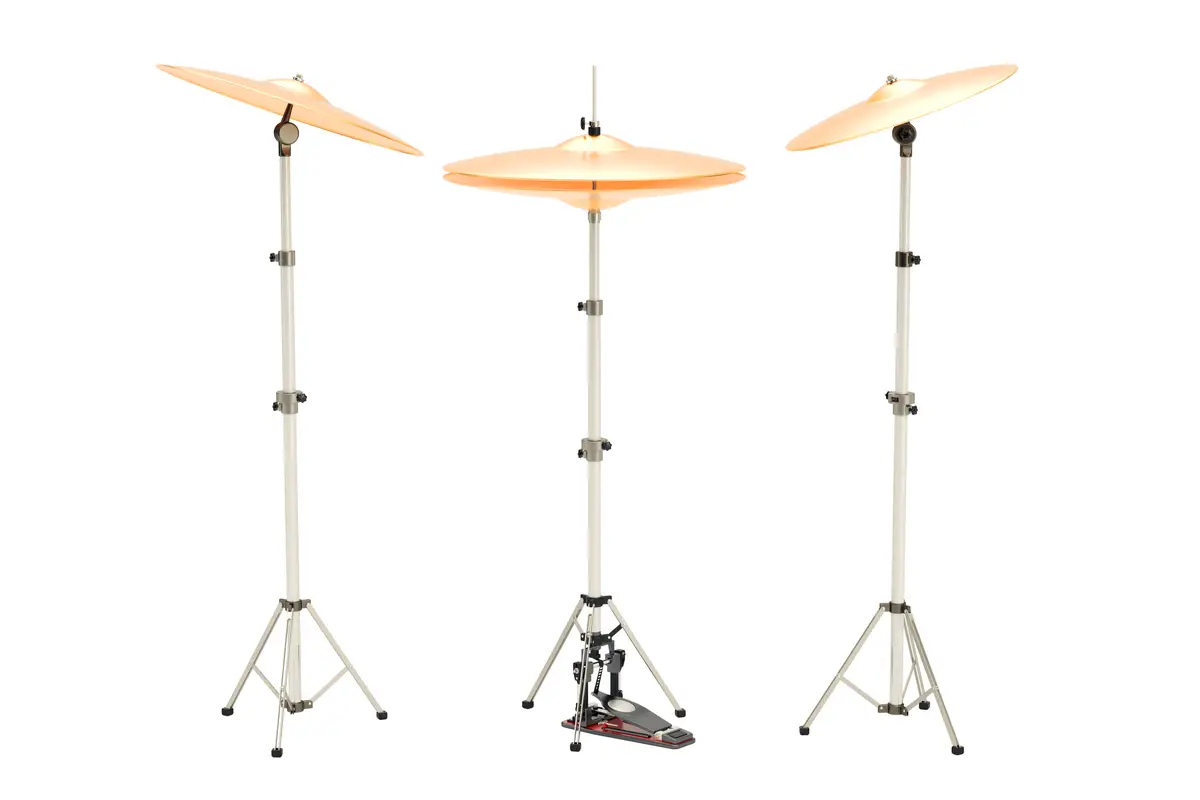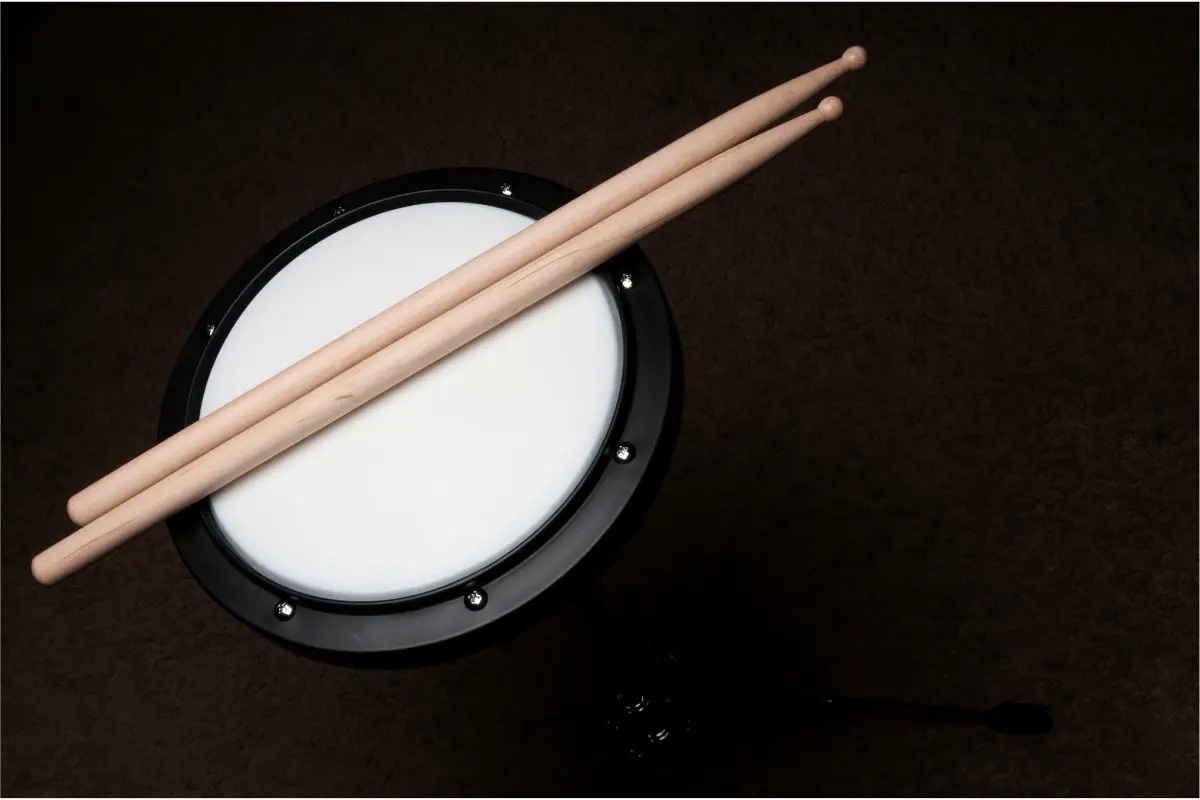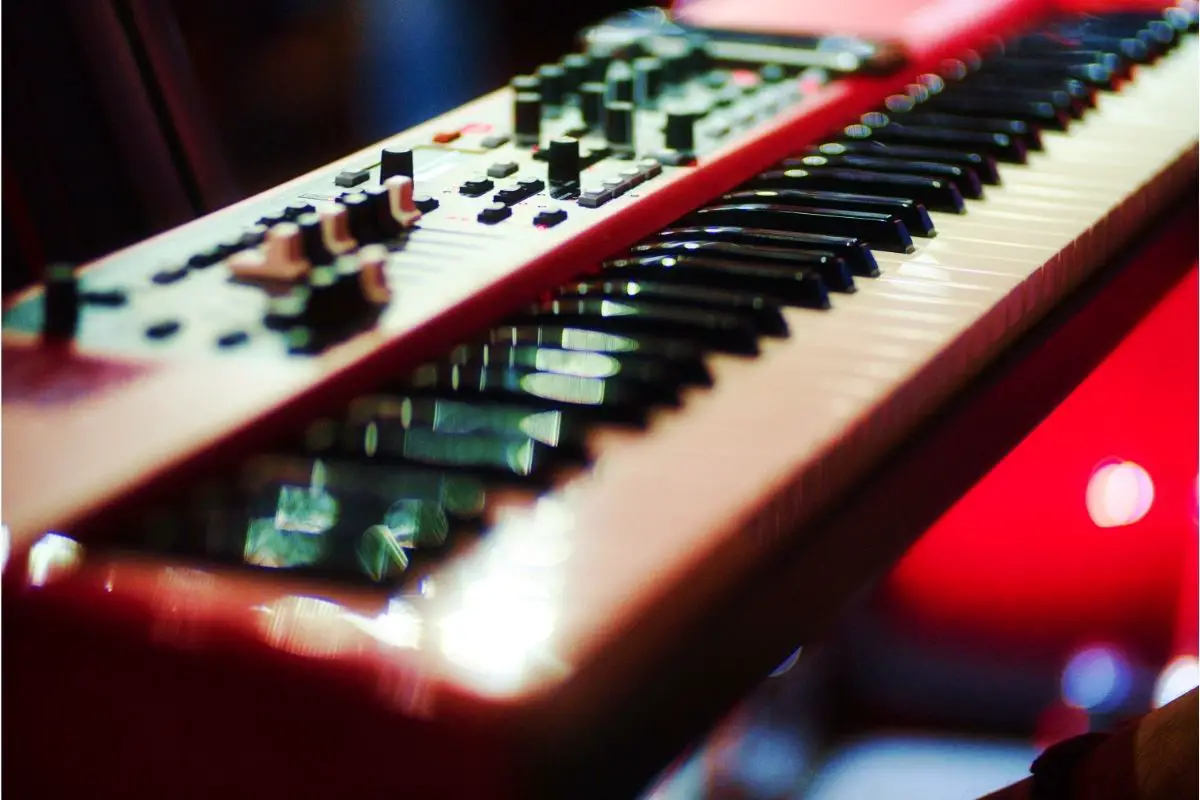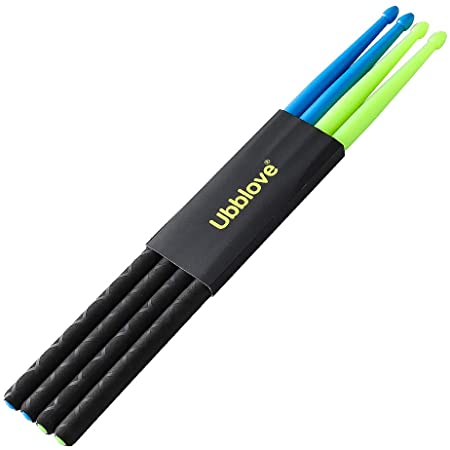The Best Short Scale Bass Guitars for Any Skill Level
A short-scale guitar can be any form of guitar. These include bass guitars, acoustic guitars, electric guitars with a scale, and acoustic-electric bass guitars. Short-scale bass guitars are smaller than regular basses. They are excellent for young guitar players looking for short-scale bass guitars. So we have a list of the best short-scale bass guitars you can get
I’ve got you covered whether you want to buy a short-scale guitar for yourself or your child. Below are the very best ones that you can buy right now.
Best Short-Scale Bass Guitars (Quick Summary)
Gretsch G2220 Junior Jet Electric Bass Guitar II
- Jet body shape
- Basswood body back
- Basswood body top
- 20 medium jumbo frets
- Dot position inlays
The Junior Jet Electric Bass Guitar II is a prevalent short-scale bass guitar among guitarists, and for a good reason.
If you’ve been in the guitar scene, you’re likely familiar with the Gretsch brand. However, suppose you’re new to guitars. In that case, you should be aware that Gretsch is a well-known and renowned guitar manufacturer. The company produces the highest quality guitars in terms of lifespan and sound.
If you’re seeking the best small-scale bass guitar neck for rapid transitions, this short-scale bass features a 30-inch neck.
This guitar’s volume and tone settings make your instrument sound practically flawless. The Gretsch G2224 Junior Jet Electric Bass Guitar II is reasonably for a guitar of this quality.
Pros
- Made by a well-known and respected brand
- Extremely affordable – given the brand name and the quality of the guitar
- Very comfortable to hold and has a nice feel to it – you will be able to play this for hours
Cons
- Potential but minor fret buzzing may happen – especially if you are learning how to play.
- The controls can feel loose – you can tighten these by adjusting the screws on the back of the guitar
Ibanez GSRM20 Mikro ¾ Size Bass Guitar
- Fast, slim Maple neck
- Compact, light-weight Body
- Dynamic P pickup
- The Package Dimensions of the Product is 8.5″H x 51″L x 21″W
This bass guitar is available in the Ibanez GSRM20 Mikro 34 size. It is widely one of the most excellent entry-level small-scale bass guitars for beginners. This guitar is made for someone who has small hands.
The Ibanez GSRM20 Mikro 34 Size Bass Guitar is an excellent entry-level tiny scale bass guitar. It is also a favorite of many professional musicians who utilize it in their live performances. And for less than $200, you too might have access to the instrument that so many professionals like!
So, why do pros enjoy playing this guitar so much since it is a beginner’s instrument? It all boils down to the sound it creates, plain and simple. In addition to being adaptable, the short scale also generates a very resonant tone that is pleasing to hear.
The pickups on this instrument are the only thing that isn’t perfect. The J-style and P-style pickups on the GSRM20, on the other hand, do not affect the instrument’s tone.
Short scales create large amounts of loudness. With the right tone and volume settings, you may achieve a significant amount of variance in the sound you make.
Pros
- Very affordable – many other guitars cost a lot more than this one
- Produces an incredible sound – This is very important in any instrument
- Excellent ergonomics and is easy to use and hold
Cons
- Only has average pickups – may bother some pros guitarists
Fender Squier Vintage Modified Jaguar Special Short Scale Bass Guitar
- Sonic power and tonal versatility delivered by the combination of a punchy Fender-designed split single coil Precision Bass middle pickup and a growling single-coil Jazz Bass bridge pickup
- Rich look and presentation via a vintage tinted gloss neck with dot inlays
- Superior sound and feel for today’s bassists, with superior Squier performance and value
the Squier by Fender Vintage Modified Jaguar Bass Guitar is a fantastic entry-level bass guitar. It makes an outstanding addition to the collection of any experienced bass guitarist. With its vintage-modified Jaguar body design, you’ll be turning heads with this one.
If you want a warm tone, a softer bottom end, and subdued upper frequencies, you should choose this bass guitar.
Several small-scale bass guitars on the market are just inexpensive. Picking the best tiny scale bass guitar might be tricky at times. The Fener Jaguar Bass V is easy to play thanks to its wonderfully curved maple fingerboard and short scale. It also has a maple neck wrapped in rosewood, calling back to a classic era.
This bass guitar has a 30-inch short scale. It accommodates hands of all sizes thanks to its 9.5-inch neck radius—the inlays on this fingerboard are thoughtfully placed at this small size.
The number of frets on this model has been lowered from 22 to 20. However, this does not affect the instrument’s tone, but it does reduce the instrument’s range by two frets. This is not likely to be a problem for novices.
The most significant disadvantage of this guitar is that it might be challenging to adjust the instrument’s tone. This is noticeable on the bass guitar’s lower end. If you rely significantly on the lower end, you might want to consider moving to a different short scale.
The pickup arrangement on this scale bass guitar consists of a single-coil jazz bass neck and split-coil P-bass bridge pickup.
You’ll have access to the standard twin volume controls and a master tone control knob for fine-tuning the system’s sound.
Pros
- Smooth design and is very comfortable to hold and play with
- Reasonable Price – for what it is, this guitar is pretty cheap
- Produces a high-quality sound – necessary for any musician
Cons
- An issue with controlling the tone – It has fewer frets than some bass guitars
Epiphone EB-0 Electric Bass Guitar
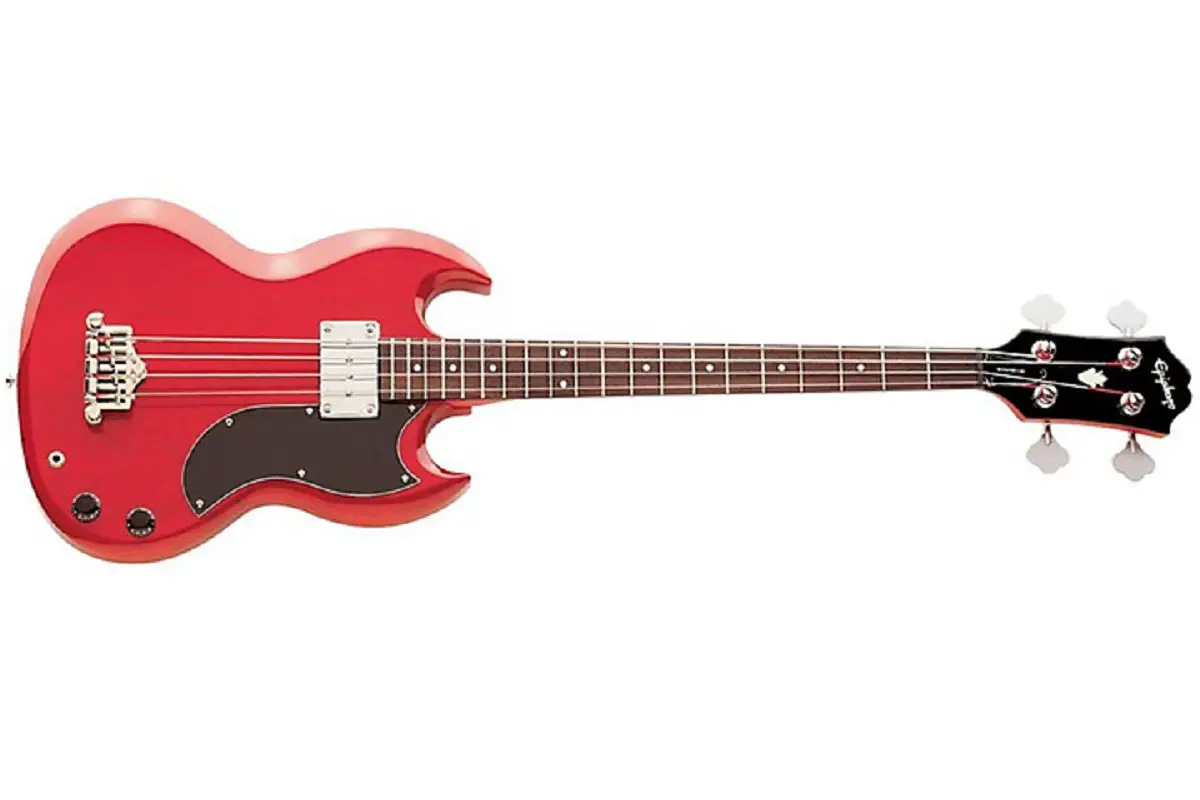
The Epiphone EB-0 Electric Bass Guitar is extremely close in appearance to the Gibson SG electric bass guitar. A classic Gibson bass guitar, the SG is one of the company’s most known models. It continues to inspire awe among bass players across the world.
A 30.5-inch scale length comes with the EpiphoneEB-0 Electric Bass Guitar. Due to the limited number of frets on this small-scale bass guitar (just 20), you can’t play some higher tones.
This small-scale bass guitar is solid mahogany, featuring a bolted mahogany neck (bolt-on neck). It also has a rosewood fretboard with dots inlaid into the surface of the wood.
The neck of this bass guitar is quite comfortable to play! It’s an excellent pick if you’re a novice searching for a model that feels similar to the Gibson SG. The Epiphone EB-0 electric bass s excellent if you wish to experiment with a pedalboard or other distortion effects.
Pros
- An excellent classic alternative to the more expensive Gibson SG
- A beautiful and classic guitar design
- Suitable for beginners and pros – no matter what your skill level is, this bass is ideal for everyone
Cons
- You can’t experiment too much with the sound of this guitar and how you play – this is because there are not enough pickups
Squier Classic Vibe Jaguar Bass
- 100% designed by Fender
- Inspired by 1970s-era Jaguar models
- Fender-Designed alnico pickups
- Vintage-tint gloss neck finish
- 32″ scale length
The Squier Jaguar is slightly longer than the other basses on our list. Still, at 32 inches, it is much shorter than most regular basses, making it appropriate for inclusion on our list.
The Jaguar has been around for a long time in the world of electric guitars. Therefore, it may surprise some that Fender did not manufacture an official Jaguar bass until 2006.
Nonetheless, the asymmetrical design is a beautiful match to the bass guitar’s bigger size. The classic design gives the idea that it has always been a part of the renowned Californian guitar maker’s collection.
With its three-color sunburst finish, vintage-inspired decals, and block inlays, this Squier bass is reminiscent of a Jaguar bass from the 1970s. However, because of the Fender-designed alnico single-coil pickups, the Classic Vibe’s striking appearance is accompanied by an equally unique sound.
The two concentric knobs that regulate the volume and tone of each pickup are very noticeable. It is possible to have an aesthetically pleasing control setup that complements the aesthetics of the bass while still being practical with this design.
Pros
- It has a traditional and vintage style to it – it mimics the 70s style block inlays
- It has a neat layout that is easy to learn and understand – making it great for beginners
Cons
- It has a 32” scale – may not be to everyone’s liking
Buyers Guide
Are you unsure what you need from your short-scale bass? Check out our buyer’s guide to see what features you should keep an eye out for!
Why Should I Buy a Short-Scale Bass?
Short-scale basses are suitable for those of shorter stature to play, especially if you have short arms. Many bass guitarists believe that the compact spacing of the bass guitar makes it a more comfortable instrument to play.
Short-scale basses are also easier to tune than long-scale basses, requiring less tension to maintain proper tuning and an easy-to-handle tune knob. That is also why small-scale basses are ideal for younger children and anybody else seeking the lovely tones associated with short scale basses.
What Is A Short-Scale Bass?
A bass guitar’s scale length is defined by the distance between the bridge and the nut. The most popular bass size is 34 inches, a direct outcome of Fender’s Precision Bass’s success.
Other basses from the era, such as the Gibson EB-1 and Höfner 500/1, broke the typical scale-length mold with finger-friendly sub-31′′ scales. But this diminutive bass style never remained the standard.
The short-scale bass is seen as a niche instrument for beginners and antique lovers. As seen by the entries on this list, this is far from the case!
As the name indicates, short-scale basses have a shorter distance between the bridge and nut. They typically have a scale length of around 30 inches.
This seemingly insignificant change has a profound influence on the instrument’s playability. Due to the neck’s smaller size, the frets are closer together. This simplifies the execution of chords, lengthy stretches, and other complex skills.
A bass’s scale length and string tension are tightly related. Bass guitars require an extended scale to compensate for the tension loss of tuning one octave lower.
As a result, decreasing the scale length – even by four inches – affects how the bass feels to play. The strings of a short-scale bass guitar offer a looser, slinkier feel.
Neck Profile
You can determine neck profiles by measuring the fretboard’s angle and how it meets the fingerboard. Most bass guitars have a very narrow neck profile, meaning that it’s easy to bend the strings.
This is good for beginners but not so much for advanced players. On the other hand, some bass guitars have a wider neck profile, making it harder to bend the strings. These types of bass guitars are better suited for intermediate and advanced players.
Guitar Shape And Weight
Unlike with other instruments, the shape of the bass significantly influences the way you play and your posture. Both are critical aspects of your performance.
When it comes to the guitar’s weight and playability, getting a short scale is the best option. Solid-body basses are the most popular basses that you will come across.
The solid-body guitar, made from solid pieces of wood, has better sustain than a hollow body guitar but is somewhat heavier. There are some excellent hollow and semi-hollow bass guitars available. Still, solid body bass guitars are the best option for the best sound.
It is critical that the guitar’s design complements your posture and allows you to feel comfortable. Heavier guitars are difficult while standing, while lighter guitars indicate some quality differences.
Who Can Play Short-Scale Basses?
In a nutshell, short-scale basses are appropriate for everyone! Bass players have a misconception that short-scale basses are only suitable for your early years as a bass player.
While some players prefer the feel of the shorter instrument, others like its punchier bottom tones.
While these shrunken basses are suitable for younger players who may struggle with a full-scale bass’s more oversized neck, they should not be considered starting instruments.
Gibson, Spector, Fender, and a plethora of other manufacturers all provide high-end, professional-grade short-scale basses, with many of them appearing unnoticed on hit albums.
Frequently Asked Questions
Do Short-Scale And Long-Scale Bass Guitars Sound Different?
In a nutshell, yes, both large-scale and short-scale bass guitars have a distinctive sound.
Suppose you’re looking for a longer response. In that case, short-scale bass guitars occasionally feature a greater string gauge than long-scale bass guitars. This feature results in a richer, more powerful tone volume control that many guitarists desire.
It also suggests that tiny scale guitars require a low string tension to maintain excellent intonation, giving the guitar strings a loose feel. With a lower string tension, the bass register of the instrument will sound larger.
What Is The Difference Between Short-Scale And Medium-Scale Bass Guitars?
The fundamental difference between a Short Scale and a Medium Scale Bass is that a “medium-scale” bass generally measures 32 inches in length, vs. 30 inches for a short scale bass and 34 inches for a long scale bass.
If the short-scale bass is out of tune, a medium-scale bass might be used as a substitute.

